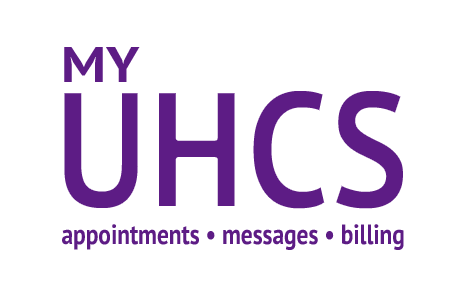Fever
Wellness Information
-
Wellness Information A-Z
- Alcohol and Other Drugs
- Allergy Information
- Anxiety Information
- Assertiveness
- Back Pain
- Birth Control Methods
- Cold and Flu
- Condoms and Barrier Methods
- Consent
- Dating Violence
- Depression and Sadness
- Eating Disorders
- Emergency Contraception
- Exercise
- Family Concerns
- Fever
- Grief and Loss
- Headaches
- Human Papillomavirus (HPV)
- Immunizations
- International Student Wellness
- LGBT Wellness
- Men's Health
- Mental Health
- Nausea and Vomiting
- Nutrition and Eating Healthfully
- Pap Tests
- Pregnancy
- Psychiatry
- Religion and Spirituality
- Sadness and Depression
- Self Esteem and Confidence
- Sexual and Reproductive Health
- Sexual Assault and Harassment
- Sexually Transmitted Infections
- Skin Care and Tanning
- Sleep
- Staying Healthy
- Stress
- Students of Color
- Suicidal Thoughts
- Test Anxiety
- Time Management
- Tobacco and Cessation Information
- Transitioning to UW-W
- TransHealth
- Travel
- Urinary Symptoms
- Veteran's Wellness
- Weight - What's Best for You?
- Women's Health
- Wellness in Whitewater
- Your Period - What's Normal, What's Not
- Sexual Assault Prevention Training
- Internships and Involvement
- Breastfeeding/Lactation Room
- Wellness Peer Educators
UHCS Services
UHCS provides direct care and self-care guidance for students with acute common illnesses. We offer flu vaccines during fall/early winter and strep throat and mono testing in-house. We also have a dispensary, which provides several medications that may be prescribed during a visit to help manage and treat respiratory infections. Call UHCS at 262-472-1300 with questions or for an appointment.
Overview
Often it is difficult to sort through what's a "cold" and what's the "flu" and then know what to do about each of those. In general, they share similar symptoms and both affect the respiratory system, but are caused by different viruses. Typically, symptoms of a cold tend to be milder, including runny/stuffy nose, sore throat, cough, and sneezing. While colds are common, it doesn't mean that you should ignore it. If you have a fever of 100F or higher, severe pain, or breathing problems, call or set up an appointment to be seen urgently.
Influenza, commonly known as "flu," is more likely to make it nearly impossible to do usual activities - sometimes you may feel like you were "hit by a truck" and experience symptoms like fever of 100-102 degrees F, headache, general body aches, extreme exhaustion at onset of illness, and weakness. Complications of influenza include bronchitis or pneumonia, which could be severe or even life-threatening. If you have these symptoms, or if you have a fever of 100 degrees or greater, you should call UHCS or your health care provider immediately for further guidance. If you live in university housing, let housing staff know that you have flu-like symptoms so that you can be issued a surgical mask.
Remember, prevention of illnesses is important for your own health, as well as the health of others around you. Family members, friends, and fellow students, especially the very young and old, people with asthma or other chronic health problems rely on you to do your part to keep everyone healthy. Wash your hands (either soap and water or alcohol-based hand sanitizer) every time you cough/sneeze/touch your hands to your face and get a flu shot every year.
Resources
Disclaimer
All information on this website is written by UHCS professional staff unless otherwise noted. No data is collected on visitors to this site. Financial Support for this web site is provided by University Health & Counseling Service, Division of Student Affairs, University of Wisconsin-Whitewater. This web site does not accept advertising.
This site is not meant to replace the advice of a health care or counseling professional. You should not rely on any information on these pages, or information generated for you by this site, to replace consultations with qualified professionals regarding your own specific situation. Some links take you to a source outside of UHCS. The owners of that site, not UHCS, are responsible for the content.



